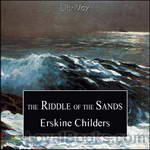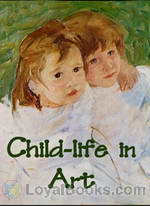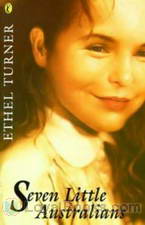|
Books Should Be Free Loyal Books Free Public Domain Audiobooks & eBook Downloads |
|
|
Books Should Be Free Loyal Books Free Public Domain Audiobooks & eBook Downloads |
|
History Books |
|---|
|
Book type:
Sort by:
View by:
|
By: Ellsworth Huntington (1876-1947) | |
|---|---|
 Chronicles of America Volume 01 - The Red Man's Continent
Chronicles of America Volume 01 - The Red Man's Continent
Characteristics of the peoples and environment of the earliest stages of America. - Summary by Jim Locke Group: Chronicles of America Series | |
By: Ellwood Patterson Cubberley (1868-1941) | |
|---|---|
 The History of Education; educational practice and progress considered as a phase of the development and spread of western civilization
The History of Education; educational practice and progress considered as a phase of the development and spread of western civilization
| |
By: Ellye Howell Glover (1868-) | |
|---|---|
 How the Piano Came to Be
How the Piano Came to Be
| |
By: Elmer Holmes Davis (1890-1958) | |
|---|---|
 History of The New York Times, 1851-1921
History of The New York Times, 1851-1921
A beautifully written and witty history of The New York Times, and of newspaper publishing in general, from the 1850s to 1921 by three-time Peabody Award winner Elmer Davis. Davis provides a detailed history of the founding of The Times; its role in the exposure and demise of the notorious Boss Tweed; its resurrection from near-failure by legendary publisher Adolph Ochs; its role in local and national politics; and how The Times became the dominant newspaper of his generation. Along the way, Davis shares insight into how technology influences newsgathering, and reveals The Times' surprising role in some of the major technological advances of the era... | |
By: Elmer Ulysses Hoenshel (1864-) | |
|---|---|
 My Three Days in Gilead
My Three Days in Gilead
| |
By: Elmore Barce (1872-1945) | |
|---|---|
 The Land of the Miamis An Account of the Struggle to Secure Possession of the North-West from the End of the Revolution until 1812
The Land of the Miamis An Account of the Struggle to Secure Possession of the North-West from the End of the Revolution until 1812
| |
By: Emerson Hough (1857-1923) | |
|---|---|
 The Story of the Outlaw A Study of the Western Desperado
The Story of the Outlaw A Study of the Western Desperado
| |
 The Passing of the Frontier; a chronicle of the old West
The Passing of the Frontier; a chronicle of the old West
| |
By: Emile Cammaerts (1878-1953) | |
|---|---|
 Through the Iron Bars Two Years of German Occupation in Belgium
Through the Iron Bars Two Years of German Occupation in Belgium
| |
 Belgium From the Roman Invasion to the Present Day
Belgium From the Roman Invasion to the Present Day
| |
By: Emile Joseph Dillon (1855-1933) | |
|---|---|
 The Inside Story of the Peace Conference
The Inside Story of the Peace Conference
| |
 England and Germany
England and Germany
| |
By: Emilio Aguinaldo (1869-1964) | |
|---|---|
 True Version of the Philippine Revolution
True Version of the Philippine Revolution
| |
By: Emily Beesly | |
|---|---|
 Stories from the History of Rome
Stories from the History of Rome
Mrs. Emily Beesly, the writer of this brilliant narrative, lived in an era of nothing but fairy tales and "the stories of nursery life" for her children. Yet, she believed that when historical stories of importance were reworded into narratives fit for her children's ears, they, too could learn the Stories from the History of Rome and grow in knowledge, fascination, and wonder with the past. This is the product of that idea and desire. Summary by Melissa Petermann | |
By: Emily Bronson Conger | |
|---|---|
 An Ohio Woman in the Philippines Giving personal experiences and descriptions including incidents of Honolulu, ports in Japan and China
An Ohio Woman in the Philippines Giving personal experiences and descriptions including incidents of Honolulu, ports in Japan and China
| |
By: Emily Henrietta Hickey (1845-1924) | |
|---|---|
 Our Catholic Heritage in English Literature of Pre-Conquest Days
Our Catholic Heritage in English Literature of Pre-Conquest Days
| |
By: Emily Ponsonby (1817-1877) | |
|---|---|
 Violet Osborne - Trilogy
Violet Osborne - Trilogy
"This book is in turns funny and sad. Violet Osborne is a very beloved child with no financial problems. She is both beautiful and good, and of course she must be happy. Yet, as we learn, she is a manipulative and overbearing woman who would do anything to get her way. This book tells us about her life as a girl, and takes us through her marriage and motherhood. It is a pleasant read, as the book is so witty and charming and the descriptions are very realistic". Summary by Stav Nisser. | |
By: Emily Richings | |
|---|---|
 Through the Malay Archipelago
Through the Malay Archipelago
| |
By: Emma Leslie | |
|---|---|
 Hayslope Grange A Tale of the Civil War
Hayslope Grange A Tale of the Civil War
| |
By: Emma Look Scott (1858-) | |
|---|---|
 How the Flag Became Old Glory
How the Flag Became Old Glory
| |
By: Emma Orczy (1865-1947) | |
|---|---|
 The League of the Scarlet Pimpernel
The League of the Scarlet Pimpernel
Written by Baroness Orczy and first published in 1919, The League of the Scarlet Pimpernel is a sequel book to the classic adventure tale, The Scarlet Pimpernel. The book consists of eleven short stories about Sir Percy Blakeney’s exploits in rescuing various aristos and French citizens from the clutches of the guillotine. The stories which are listed below, are set in 1793 but appear in no particular order. They occasionally refer to events in other books in the series. | |
By: Emmett J. Scott (1873-1957) | |
|---|---|
 Booker T. Washington Builder of a Civilization
Booker T. Washington Builder of a Civilization
| |
 Negro Migration during the War
Negro Migration during the War
| |
By: England and Wales. Sovereign | |
|---|---|
 A Declaration of the Causes, which mooved the chiefe Commanders
A Declaration of the Causes, which mooved the chiefe Commanders
| |
By: Enos A. Mills (1870-1922) | |
|---|---|
 Wild Life on the Rockies
Wild Life on the Rockies
“This book contains the record of a few of the many happy days and novel experiences which I have had in the wilds. For more than twenty years it has been my good fortune to live most of the time with nature, on the mountains of the West. I have made scores of long exploring rambles over the mountains in every season of the year, a nature-lover charmed with the birds and the trees. On my later excursions I have gone alone and without firearms. During three succeeding winters, in which I was a Government Experiment Officer and called the “State Snow Observer,” I scaled many of the higher peaks of the Rockies and made many studies on the upper slopes of these mountains.” | |
By: Enos Herbert Glynne Roberts | |
|---|---|
 The Story of the "9th King's" in France
The Story of the "9th King's" in France
| |
By: Eric Fisher Wood (1889-1962) | |
|---|---|
 The Note-Book of an Attaché Seven Months in the War Zone
The Note-Book of an Attaché Seven Months in the War Zone
| |
By: Eric Parker (1870-1955) | |
|---|---|
 Highways and Byways in Surrey
Highways and Byways in Surrey
| |
By: Ernest Albert Savage (1877-1966) | |
|---|---|
 Old English Libraries
Old English Libraries
| |
By: Ernest Belfort Bax (1854-1926) | |
|---|---|
 German Culture Past and Present
German Culture Past and Present
| |
 Story of the French Revolution
Story of the French Revolution
Preface Excerpt: "The following sketch of the course of the French Revolution was originally published during 1889 in serial form in "Justice," the weekly organ of the Social Democratic Federation. It has been revised, corrected, and, in some parts, added to, for the present re-issue. It need scarcely be said that it in no way pretends to be a complete history of the great political, social, and intellectual movement it describes. The present volume is designed primarily as a guide to those who,... | |
By: Ernest Daudet (1837-1921) | |
|---|---|
 Which? or, Between Two Women
Which? or, Between Two Women
| |
By: Ernest Giles (1835-1897) | |
|---|---|
 Australia Twice Traversed, Illustrated,
Australia Twice Traversed, Illustrated,
| |
By: Ernest R. (Ernest Richard) Suffling (1855-1911) | |
|---|---|
 Jethou or Crusoe Life in the Channel Isles
Jethou or Crusoe Life in the Channel Isles
| |
By: Ernest Scott (1867-1939) | |
|---|---|
 Terre Napoleón; a History of French Explorations and Projects in Australia
Terre Napoleón; a History of French Explorations and Projects in Australia
| |
By: Ernest Thompson Seton (1860-1946) | |
|---|---|
 The Arctic Prairies : a Canoe-Journey of 2,000 Miles in Search of the Caribou; Being the Account of a Voyage to the Region North of Aylemer Lake
The Arctic Prairies : a Canoe-Journey of 2,000 Miles in Search of the Caribou; Being the Account of a Voyage to the Region North of Aylemer Lake
| |
By: Ernest William Hawkes (1883-) | |
|---|---|
 The Dance Festivals of the Alaskan Eskimo
The Dance Festivals of the Alaskan Eskimo
| |
By: Erskine Childers (1870-1922) | |
|---|---|
 The Riddle of the Sands
The Riddle of the Sands
Containing many realistic details based on Childers’ own sailing trips along the German North Sea coast, the book is the retelling of a yachting expedition in the early 20th century combined with an adventurous spy story. It was one of the early invasion novels which predicted war with Germany and called for British preparedness. The plot involves the uncovering of secret German preparations for an invasion of the United Kingdom. It is often called the first modern spy novel, although others are as well, it was certainly very influential in the genre and for its time... | |
By: Estelle M. Hurll (1863-1924) | |
|---|---|
 Child-life in Art
Child-life in Art
The poetry of childhood is full of attractiveness to the artist, and many and varied are the forms in which he interprets it. The Christ-child has been his highest ideal. All that human imagination could conceive of innocence and purity and divine loveliness has been shown forth in the delineation of the Babe of Bethlehem. The influence of such art has made itself felt upon all child pictures. It matters not whether the subject be a prince or a street-waif; the true artist sees in him something which is lovable and winning, and transfers it to his canvas for our lasting pleasure. | |
By: Esther Singleton (-1930) | |
|---|---|
 Russia As Seen and Described by Famous Writers
Russia As Seen and Described by Famous Writers
| |
By: Ethel J. Rosenberg (1858-1930) | |
|---|---|
 A Brief Account of the Bahai Movement
A Brief Account of the Bahai Movement
“Many believe that we, in this century,” writes Ethel Rosenberg, “ are witnessing the dawn of a new spiritual epoch or era. A renewal of the Spirit is making itself felt in the Churches and in the religious and social life of all lands. This is in harmony with the teachings of the Bahais, and of their Great Leaders, now represented by Abdul Baha the ‘Servant of God,’ known to the outside world as Abbas Effendi. Once again, the Light is shining forth from that land which may indeed be called... | |
By: Ethel Sybil Turner | |
|---|---|
 Seven Little Australians
Seven Little Australians
This is the story of seven incorrigible children living near Sydney in the 1880’s with their military-man father, and a stepmother who is scarcely older than the oldest child of the family. A favourite amongst generations of children for over a century, this story tells of the cheeky exploits of Meg, Pip, Judy, Bunty, Nell, Baby, and The General (who is the real baby of the family), as well as providing a fascinating insight into Australian family life in a bygone era. | |
By: Etheria | |
|---|---|
 Pilgrimage Of Etheria
Pilgrimage Of Etheria
This late fourth century common era narrative of a Christian pilgrimage is the earliest such text which survives to us. It is an important source of information about early Christian practices. This book has an extended introduction which provides invaluable context and summaries, though some of it is a bit scholarly and dry. The text is damaged with some parts missing; missing parts will be designated in this recording by this verbal usage: “dot dot dot dot” . More information: Egeria, Etheria or Aetheria was a woman, widely regarded to be the author of a detailed account of a pilgrimage to the Holy Land... | |
By: Étienne de La Boétie (1530-1563) | |
|---|---|
 Anti-Dictator: The Discours sur la servitude voluntaire
Anti-Dictator: The Discours sur la servitude voluntaire
Étienne de La Boétie was the closest friend of Michel de Montaigne and the subject of the latter's famous essay "On Friendship." Here, however, he tackles a different, more impersonal relationship: that of ruler and ruled. The argument in this work is encapsulated in this quote: "A people enslaves itself, cuts its own throat, when, having a choice between being vassals and being free men, it deserts its liberties and takes on the yoke, gives consent to its own misery, or, rather, apparently welcomes it... | |
By: Eugène E. (Eugène Edward) Street (-1913) | |
|---|---|
 Spanish Life in Town and Country
Spanish Life in Town and Country
| |
By: Eugene Lawrence and Sir William Smith | |
|---|---|
 A Smaller History of Rome
A Smaller History of Rome
A SMALLER HISTORY OF ROME, FROM THE EARLIEST TIMES TO THE ESTABLISHMENT OF THE EMPIRE. BY WILLIAM SMITH, LL.D. NOTICE. The present History has been drawn up chiefly for the lower forms in schools, at the request of several teachers, and is intended to range with the author's Smaller History of Greece. It will be followed by a similar History of England. The author is indebted in this work to several of the more important articles upon Roman history in the Dictionary of Greek and Roman Biography.... | |
By: Eugene P. (Eugene Percy) Lyle (1873-1961) | |
|---|---|
 The Missourian
The Missourian
| |
By: Eugène Sue (1804-1857) | |
|---|---|
 The Brass Bell or, The Chariot of Death
The Brass Bell or, The Chariot of Death
| |